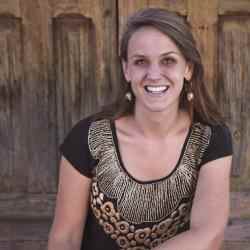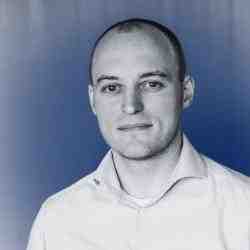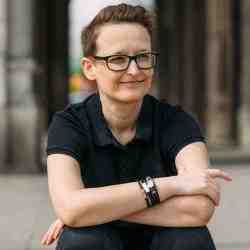Introduction
Jaime Ibacache-Burgos is developing a new health model in Chile that responds to communities’ specific needs according to their environment and culture. His Salud Colectiva (Collective Health) method promotes integration and equality between those who receive treatment, those involved in health delivery, and the greater bio-medical community. In this way it strengthens communication between local health practitioners and medical experts, while respecting the cultural practices and autonomy of local populations and ultimately ensuring that health delivery is people-centric.
The New Idea
Jaime promotes an approach to health care that takes into account local cultural knowledge and practice, ritual experiences, and sharing community resources. He promotes knowledge sharing between medical teams (doctors, nurses, midwives, dentists, social workers, paramedics), local traditional healers, and the community; and thus ultimately a medical discipline with a more egalitarian approach. In his search for individual and collective empowerment, Jaime’s team promotes social participation in administrative management and proceedings of health programs. This encourages the sharing of knowledge between specialized bio-medical professionals and the local community. Jaime is also developing a plan to train future health professionals; generating a model that responds to the needs of rural populations. He has been able to convince Chile’s Ministry of Health to use his health care criteria in rural areas and in some urban areas where biomedical systems do not respond to the their needs. Each “medical round,” designed to deliver health care in rural areas, is made up of different specialists in addition to members of the community who make their contribution to the interpretation of symptoms and ailments, thus helping to reestablish the equilibrium of the patients. This team (Salud Colectiva) is composed of community members, such as midwifes, local healers, and various medical specialists that collectively bring knowledge about the social and cultural determinants of health and wellness processes. This approach strengthens family and community strategies that naturally protect human health, and generates a sociocultural path that strengthens the community.
The Problem
In Chile, for decades the official health system has been developed in a vertical manner–centralized and based on an epidemiological profile focused solely on infectious diseases. Today this epidemiological profile is based more on chronic diseases which requires a different understanding of their causes, prevention, and treatment. The inhabitants of the Island of Chiloé (sometimes living in far away places with difficult access to biomedical health care) possess medical and cultural knowledge that is sustainable as a local strategy in a globalized, neoliberal world. It is crucial to both to strengthen and give credence to this knowledge to insure its survival over time. In the territories of the south of Chile that make up the provinces of Araucanía, Llanquihue, Chiloé, Palena, Magallanes, and Tierra del Fuego y Ultima Esperanza, live diverse cultural groups that for centuries have migrated between these territories through the southern channels. These groups correspond mainly to the original Mapuche, Williche, Kawesqar, and Yamana, sharing cultural characteristics and lifestyles. They also share similar ideas when it comes to their territorial occupation and the way they understand health and illness when confronted with biomedical technology. Usually ignored by public health care systems, these communities have had to develop their own ways to evaluate and resolve their health problems. The personal strategies and healing paths (or equilibrium recovery) that the native and non-native communities rely on are based on values of reciprocity, solidarity, absence of transgression, and respect for life. They also have unique concepts of personhood and their relationships with the spiritual and physical environment.Chile has universal health support in the traditional sense and it is the most extensive in Latin America. But this system has developed in a way that does not differentiate between the needs of rural and urban populations. Therefore, it is not succeeding in providing solutions to the problems of people living in isolated areas and those of ethnic minorities. It also does not recognize the ancestral existence of alternative ways of conceiving illnesses and their cures, and thereby creates challenges for biomedical doctors to communicate with their patients and vice-versa. Most importantly, the Chilean health system does not respect the cultural diversity, space, and time which has contributed to the systematic destruction of ancient practices, with the consequential domination of an authoritarian health model, centralized and dismissive, who’s policies have produced fear, dependency, loss of autonomy and a lifestyle of progressive reliance on medication—as seen in the inordinate use of pharmaceuticals as the only solution for most health problems.
The Strategy
Jaime is creating new processes and standards that originate within the system of public health. He has developed the first diagnosis of sociocultural epidemiology and clinical activities that compliments medical “know-how.” He has used different tools as ways of registering his results, such as clinical histories, descriptions of alternative paths to healing, testimonial videos, complimentary therapies, and finally publishing articles and referencing relations with community therapists.Jaime has created an interdisciplinary and multicultural group. His Collective Health Unit complements professional training in areas such as Medical Anthropology, Sociocultural Epidemiology, Local History, Complimentary Medical Systems, Research and Applied research (such as his current research based on cultural syndroms), and the fortifying of community organizations. The medical team, along with community therapists, carry out their medical attention in people’s homes and in community centers, where they also produce training materials. The team’s responsibilities include: Collaborative production of articles and papers; insertion in special health programs of the public system; insertion in national and foreign universities; participation in undergraduate and graduate studies; establishing a pilot model of Collective Health in certain territories with a training program for the community’s health professionals, and establishing relationships with other groups in the public health field where this complimentary focus on health care has been incorporated (like mental health groups). The activities that make up this model are principally applied to the communities themselves and to community therapeutic specialists. To work in these territories, Jaime has created smaller groups that are characteristically similar to those of the people from the local communities.Jaime also participates in forums and national and international meetings with the objective of strengthening local autonomy; which ultimately foments self-respect as well as encourages understanding from the biomedical arena.Jaime has developed health models in two areas, Temuco and Chiloé, both in the south of Chile. He has also been a consultant for teams and indigenous groups in northern Chile as well as in the far south. Also, at the Universidad Arcis, they are now developing courses for agronomy students and sustainable development in order to introduce an integrated model of development that stems from sociocultural determinants of health for individuals, families, and communities. Students from other universities and countries also come to be trained by Ibacache in the Collective Health Unit in Chiloé, which Jaime directs. In January of 2006, after signing an agreement between the Municipality of Quinchao, the Hospital of Achao, and the Provincial Department of Health of Chiloé, Jaime implemented a complementary and integral health system that is carried out in six islands of the locality (Alao, Apiao, Meulin, Caguach, Quenac, and Chaulinec). His team visits these areas monthly. Jaime also belongs to and coordinates the Chilean and Latin American Association of Social Medicine (with offices in Mexico, Brazil, Chile, and Argentina) which represents a powerful channel to replicate his model.
The Person
Jaime is the first of three brothers of a middle-class family, and the father of four children. In his family, dedication to health related issues was an important part of their everyday lives. Jovita Gallegos, his maternal grandmother, introduced him at an early age to different ways of thinking about health and illness, becoming his first teacher in complimentary health therapies. He remembers his grandmother teaching him about the medicinal plants, which she cultivated in her garden in Concepción and often used to treat his ailments. She had a special way of being and appreciating nature that he later resonated in his shared experiences with the Mapuche communities he worked with.
When Jaime met Machis (Mapuche shamans) or Lawentuchefe (Williche healers), his relationship with them drew him closer to his grandmother and her teachings. His mother also has ample health knowledge and experience from having worked at the Hospital of Concepción, with an integrated training of native knowledge and that of occidental medicine. Meanwhile, his father, a traveling salesman during the summers of his childhood, showed him the roadways of the southern parts of Chile. These trips inspired in him a constant search to share everyday experiences with sincere, ordinary people in solidarity. His father’s death, when he was sixteen-years-old, challenged him to continue to live his life trying to understand other people’s experiences and their worlds.
Jaime studied medicine at the University of Concepción. Once he became a surgeon, he went to Traiguén in the Araucanía region working as a general practitioner while he waited for his scholarship. When his reply came he realized he no longer wanted to “specialize,” but rather to rediscover the native world that was present in his home and family. He became a self-taught man, going from place to place, traveling through many countries in Latin America and always seeking and synthesizing ancient knowledge of native populations.Later, with a scholarship he specialized in pediatrics, which allowed him to develop modules of intercultural pediatrics for medical students at the Universidad de la Frontera. He completed a Master’s degree in Management of APS (primary care), taking courses in Anthropology of Health, among others, training a new generation of doctors who shared his vision, and intensified his investigation of rural and native worlds. He brought together groups of professionals from different fields, such as anthropologists, sociologists, and local leaders to intensify his efforts to build a multicultural and interdisciplinary world where the “health” of populations is the first priority.In 2003, after years of working with Mapuche communities and directing health programs for indigenous groups, he became the medical VP of the Southern Araucanía Health Service and the Technical Director of the first Mapuche Hospital, created by the community of the Makewe territory. After the Makewe endeavor was well on its way, he moved to Chiloé’s Isla Grande, where he fell in love with the natural beauty of the people and the environment, and was mystified by their fragility, resilience, and survival. He began to apply his life long knowledge, his experience with the rural world, and his own feelings and world vision and integrated it into all into his new methodology.Today he directs the Collective Health Unit at the Chiloé Health Service (www.saludcolectivachiloe.blogspot.com). His primary objective is to conduct applied research to understand the reasons why individuals, families, and communities become ill and what they do to stay well. This methodology is grounded in the idea that local people need to regain their sense of belonging and rescue their own practices. By doing so, he hopes biomedical community will take them into consideration in such away that it will generate a genuine dialogue and that perhaps more healing can take place in the hands of the people rather than concede full authority over to the biomedical “know-how.” His goal is that this deep understanding will provide the basis for radical change in how “health” is conceived, practiced, and delivered in Chiloé and will ultimately provide a model for other areas in Chile and around the world.




